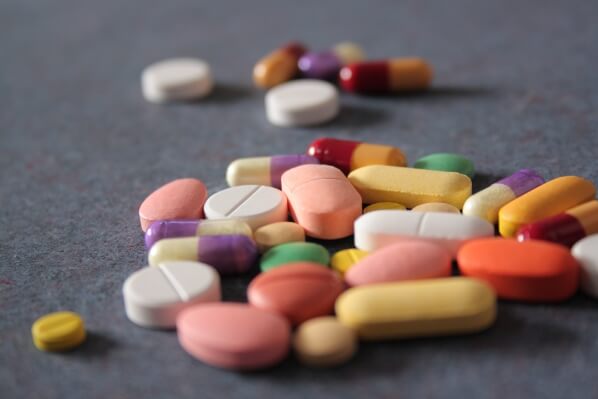The extent of drug use in the country in 2018 is comparatively high when compared with the 2016 global annual prevalence of 5.6 per cent among the adult population, a report by NBS on Drug abuse in Nigeria 2018 has stated.
Published by the National Bureau of Statistics (NBS), it held that the past year’s prevalence of any drug use in the country is estimated at 14.4 per cent or 14.3 million people aged between 15 and 64 years.
It further highlighted a considerable level of past-year use of psychoactive substances, particularly “the use of cannabis, the non-medical use of prescription opioids (mainly Tramadol, and to lesser extent codeine, or morphine) and cough syrups (containing codeine or dextromethorphan)”.
The study indicated that drug use was prevalent between the northern and southern geopolitical zones.
It noted: “Highest past-year prevalence of drug use was found in the southern political zones: South-east, South-west, and South-south zones (past year prevalence ranging between 13.8 – 22.4 per cent of the population) compared to the North (ranging between 10 – 14.9 per cent of the population).”
It said people, who inject drugs, constitute a sizeable proportion of high risk drug users in the country.
“One in five high risk drug users is injecting drugs. The most common drugs injected in the past year were pharmaceutical opioids, followed by cocaine and heroin. While overall, more men were injecting drugs, women were more likely than men to report injecting heroin.
“The extent of risky injecting practices and sexual behaviours among the high
risk drug users and in particular those who inject drugs is also of concern as is the extent of self-reported HIV among this group. Women who injected drugs were more likely than men to engage in high-risk sexual behaviours further compounding their risk for acquiring HIV among other infections,” it stated.
The report added: “There is a clear gap in meeting the needs for treatment and care for people with drug use disorders. Two-
thirds of high-risk drug users reported a self-perceived need for drug treatment.
“Around 40 per cent among those reported had wanted to receive drug treatment but were unable to access such services. The cost of treatment, stigma associated with accessing such services as well as stigma associated with substance use in general, and availability of adequate drug treatment services were the major barriers in accessing drug treatment in Nigeria.”
However, the Statistician General of the Federation/Chief Executive, NBS, Dr. Yemi Kale, said drug use as well as its attendant consequences are “fast becoming one of the increasingly talked about challenges across our country today”.
According to him, “It has, and still continues to affect the lives of many individuals, families, organisations and communities across our country. Many families have been broken, lives lost and relationships destroyed as a result of drug use.
“It has also contributed to several adverse public health conditions and increased criminal activities. Accordingly, it
is time to put in place, comprehensive measures designed to tackle this growing problem before it becomes an even worse national challenge.”
Kale said the 89-page report will provide good and comprehensive basis for understanding the nature and severity of drug use in the country as well as provide information on high drug users, health consequences of drug use and the social implications of drug use, including harm to users and others.
He said it further served as good source of data for the 2030 sustainable development agenda to measure the Sustainable Development Goals (SDGs) indicators.
The report is the result of a collaborative research effort between the NBS, Federal Ministry of Health, Centre for Research and Information on Substance Abuse (CRISA) and the United Nations Office on Drugs and Crime (UNODC) through the European Union (EU) funded project ‘Response to Drugs and Related Organised Crime in Nigeria’.





















